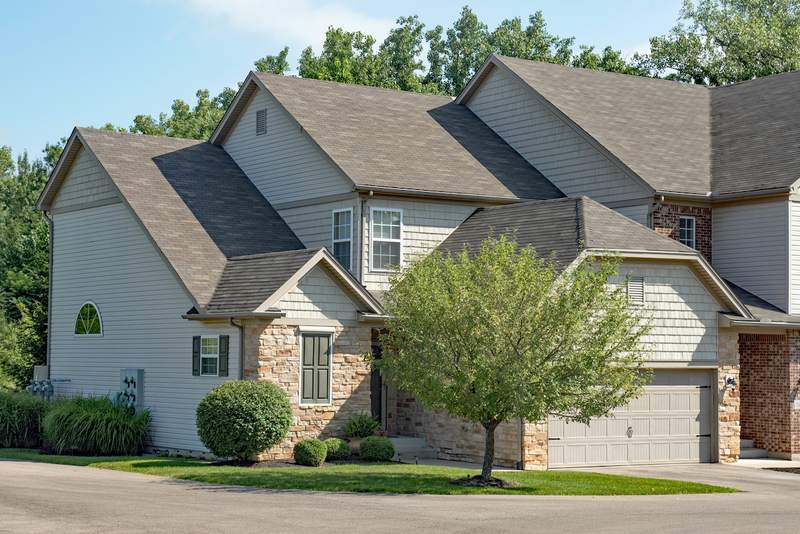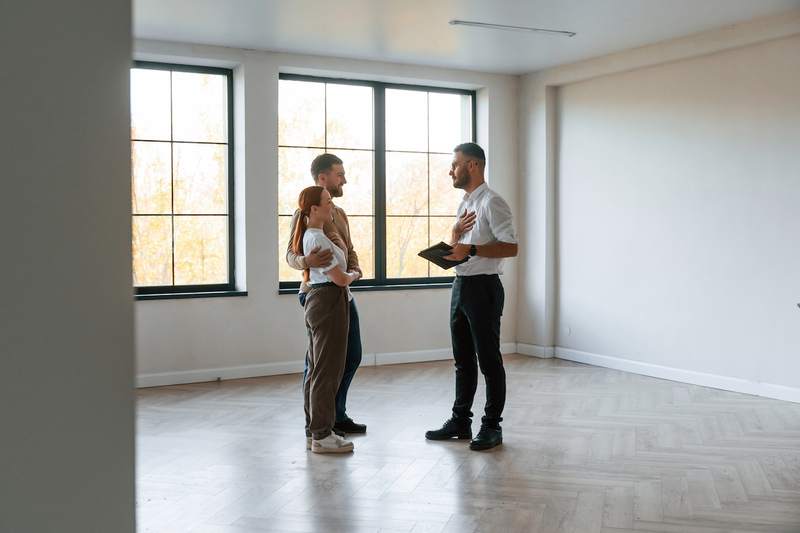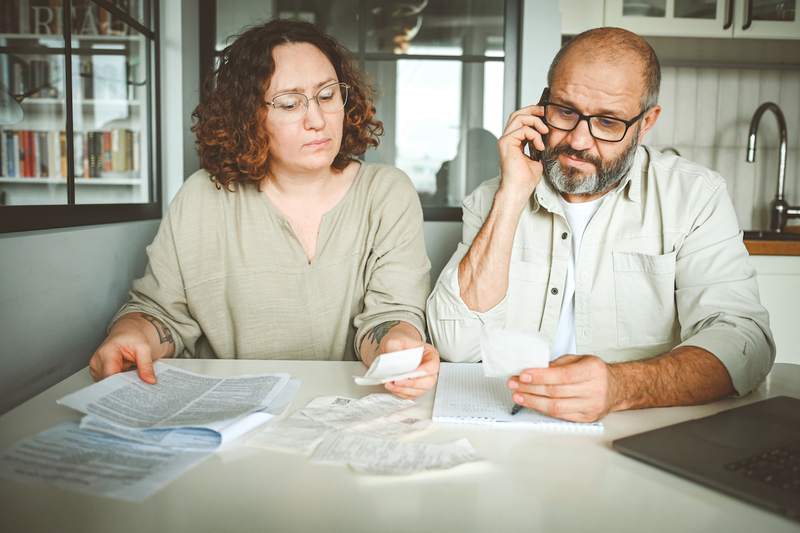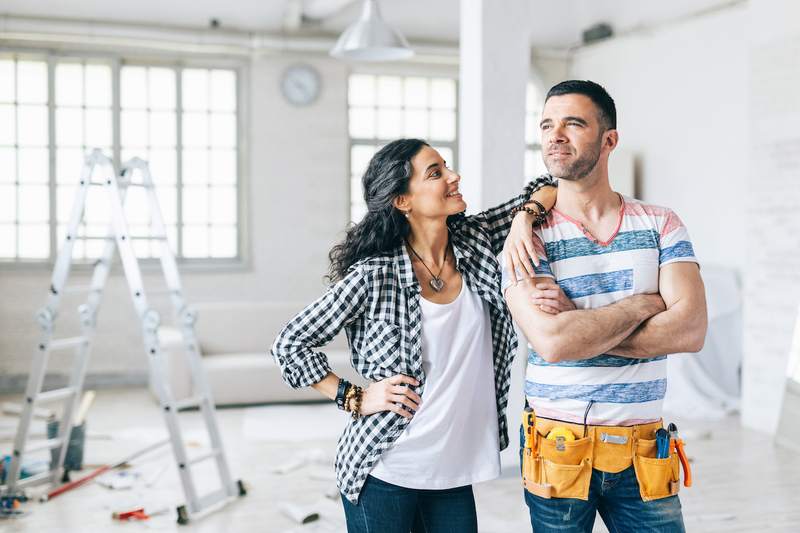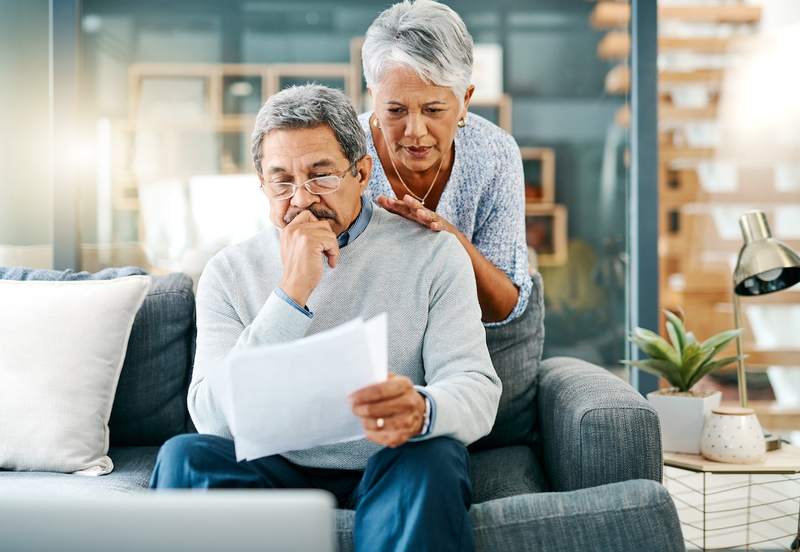Determining the market value of a home is a mix of science and art.
The science part comes from the home’s concrete characteristics, such as its size, major features, location, etc. But home is where the heart is, and emotional factors that can’t be easily quantified can play a big role in determining how much a home is worth.
Here’s a look at 13 factors that will affect property values for homebuyers and sellers.
1. Whether You’re on a Corner Lot
There’s a lot of back-and-forth regarding corner lots. Some people love them, some people hate them — but can they affect a home’s value?
The answer is yes. Some home builders charge a premium for corner lots, which often are larger or more distant from neighbors. This can be valuable to buyers, says Kathy Hicks, a Realtor at Taylor Properties in the Texas Hill Country.
“Buyers looking for more light, bigger backyards, and even more privacy often lean toward corner lots,” Hicks says. “While corner lots on busy intersections can have the opposite effect, corner lots on quiet streets or cul-de-sacs can be more enticing for buyers than homes mid-street.”
But do buyers recognize that same value?
Well, according to a study by Duke University, no. The 2014 paper, which was based on homes in the area near Duke — Durham, North Carolina — found that the value of homes on corner lots was not statistically different from homes in the middle of the block.
So, is a corner lot good or bad? It really comes down to buyer preference. More research is required, but this might need to be evaluated on a case-by-case basis.
2. The View From Your Property
Beauty is in the eye of the beholder. And when it comes to factors that affect home values, that could mean a higher price tag.
It makes sense that a home with a beautiful view can command a premium compared to a home without a view. According to a recent U.K. study, that idea checks out. The study, conducted across 23 major U.K. cities, found that homes with a good view demanded prices that were, on average, 34% higher than similar homes without a view.
Whether you’re hoping to see water from your back porch or look over the city at night, expect homes with a pretty outlook to cost more.
3. The Slope of Your Backyard
A sloped yard often means that a home sits on a rolling hill, or even has a high perch with a view. But it can also be a pain in the neck for buyers, and result in decreased property values.
The slope of a yard can give buyers pause if they’re left wondering how they’ll mow the grass, put up the kids’ swing set, or enjoy their outdoor space. If the slope goes toward the home, it could give rise to concerns about water intrusion in the home.
While these potential issues might not ding the appraised value of the property — especially if there aren’t any grading issues that would require correction — they can still change a buyer’s perceived value of the home.
4. Unusual Decor
A buyer can always make a house their own and change up the decor. However, a home that shows with unusual paint colors, outdated window treatments, or strange furniture can turn away buyers and decrease the property’s perceived value.
A 2021 report by the National Association of Realtors found that buyers are better able to see themselves in a home that is well staged. In fact, 82% of the buyers’ agents surveyed said that staged homes made it easier for their buyers to visualize themselves living there, resulting in an average value boost of up to 10%. Of those agents, 10% said that their buyers expected homes to be decorated and staged in a way that reflected the homes they’d seen on television.
5. Street Names
There doesn’t seem to be much rhyme or reason for the street names in many neighborhoods. Some are themed, some follow a pattern, and others seem to have been pulled from a hat. But no matter how lovely the homes, the street name alone could potentially be what brings down property values in a certain area.
A few years ago, The New York Times published an article connecting street names with what affects home values. It looked at many years of home sales data and found that, in general, homes on common street names like Main Street were valued lower by an average of 4%.
6. Registered Sex Offenders Living Nearby
These days, a quick online search can tell you exactly where registered sex offenders reside, their proximity to your home, and even details of the crime for which they were convicted. But buying a home too close to one or more registered sex offenders can mean dealing with decreased values.
A 2016 study published in the Atlantic Economic Journal found that even living within 0.3 miles of a sex offender can impact your home’s value by about 3%. The closer the home is located to the convicted individual, the greater the drop in value — up to an average of 7%.
7. Rumors of Paranormal Activity
When you think of ghosts, you probably think of creepy, old houses that have been abandoned for decades. But the reality is that, for those who believe in paranormal activity, even modern homes have the potential to be haunted.
With the popularity of shows like “Ghost Hunters,” haunted homes have developed a bit of a cult following. Even if you enjoy watching shows about other people’s ghosts, though, you probably don’t want to live with one.
The effect of ghosts on home values has been documented in a number of international studies in recent years. One study by a Scottish statistician found that haunted homes lost an average of 17% of their value, simply as a result of paranormal activity. A survey conducted by a Scottish TV channel also found that 55% of respondents would be reluctant to buy a haunted house.
8. High-Profile Murders or Other Crimes
It can be difficult to view a property in the same light if a serious crime — or even a murder — was committed there.
In our online world, finding out about the crimes and deaths that have occurred in a home is easy. And, depending on the buyer, this could impact the perceived value of the property. If a buyer is creeped out by the idea of someone passing away in their kitchen or a violent crime occurring, they may be unwilling to buy the property at all, no matter how much they like it.
The effect isn’t limited to the home itself. According to a study by the Hong Kong University of Science and Technology, just being on the same block or even neighborhood as a home where an unnatural death occurred could be enough to affect a home’s value by nearly 10%.
And the home where the death occurred? It lost an average of one-fifth of its value as a result.
9. The Neighbors
When looking at a home, buyers often consider the neighborhood as a whole. If nearby properties are in poor condition, you can expect your home value to also be impacted.
But as anyone who’s watched “Dennis the Menace” can attest, good or bad neighbors can make or break one’s experience with a property.
“Even if the home for sale is amazing, the market value of how much a buyer is willing to pay is often influenced by the surrounding homes,” says Val Breit, a real estate agent at RE/MAX Shine in Jefferson, Wisconsin. “Do the neighbors have junk lying around out front? Do they have three aggressive-sounding dogs in the yard? Do their homes look unkempt? When potential buyers are considering moving into a home that’s for sale, they’re going to notice the neighbors, too.”
10. The Local School District
This one might not surprise you: The schools that your neighborhood feeds into can have an impact on home prices.
According to another recent study by NAR, 53% of homebuyers with children said that the quality of the nearby school district was an important factor when choosing a home. For some, it doesn’t matter how perfect the home itself might be — if it feeds into a low-rated school, the property could be nixed right away.
11. Community Trends and Projections
What a community offers today factors into a home’s value, but so does the potential growth of that area and where it’s expected to head.
“Is the community in line for potential future development or urban sprawl, or is there a plan for a larger corporation to build nearby?” says Adriane Stuebs, broker and owner of RE/MAX Shine in Jefferson, Wisconsin. “Good leadership in the municipality and the business district is also a hidden factor; healthy communities bring about a good return on your investment.”
12. Proximity to Trader Joe’s or Target
A home’s proximity to popular stores like Target or Trader Joe’s — which might not be found in smaller towns or older areas — can positively affect its value, according to two different studies this year. Attom Data found that simply being in a town that had a Trader Joe’s, a Whole Foods Market, or an Aldi could increase a home’s value and five-year property appreciation, while a RealtyTrac study showed that homes near a Target had above-average appreciation — especially compared to homes near a Walmart.
13. Nearby Cemeteries
Well-manicured lawns. A quiet environment. Nighttime security. No, this isn’t a nearby gated community — it’s your local cemetery.
Many homebuyers get creeped out at the thought of living near the dearly departed, which can affect home prices. According to data from Realtor.com, homes in areas with graveyards had median sales prices roughly 12% lower than comparable homes in a non-graveyard area.
FAQ: ‘Hidden’ Factors That Affect Home Value
Here are some frequently asked questions about factors that influence home values.
Arguably, the most common reason a home will sit on the market for longer than expected is its listing price. If the property is overpriced — and especially if the sellers are unwilling to budge on the price — then it’s not likely to move off the market.
Being overpriced means a seller is asking for more than the property is actually worth. But what affects property value? Everything from market demand to the home’s condition, square footage, and location to, of course, the 13 “hidden” factors we covered above.
Depending on how much you want to spend and how quickly you want your house to sell, there are a few repairs and updates you could consider that might move the property faster.
The most affordable changes when it comes time to sell include a fresh coat of paint, simple landscaping to improve curb appeal, and professional staging. You should also consider replacing stained or worn caulking in bathrooms and the kitchen, updating fixtures, and even replacing drawer pulls on cabinets. If there are any obvious damages — like holes behind doors or broken hinges — these should be addressed before selling your home if you want top dollar.
Arguably, your home’s value is dictated by the housing market. That’s because regardless of what anyone else says, your home is really only worth what someone else is willing to pay for it.
With that said, your home’s value is officially determined by a home appraisal. This report is conducted by an unbiased third party, and considers factors like your home’s size, location, age, features, and condition. It can be negatively affected by damaged systems and structures, or positively affected by other comparable homes that have recently sold, also known as comps.
The Bottom Line on ‘Hidden’ Factors That Affect Home Values
If we’ve learned anything from the last few years of housing market instability, it’s that understanding a home’s value is one of those “take it with a grain of salt” situations. Values can be affected by everything from traffic and local grocery stores to the neighbors’ dogs and whether you believe in ghosts. The exact impact of these “hidden” factors is unclear, and may vary from one market to the next. What we do know, though, is that the value of a home is based on a lot more than its square footage.
